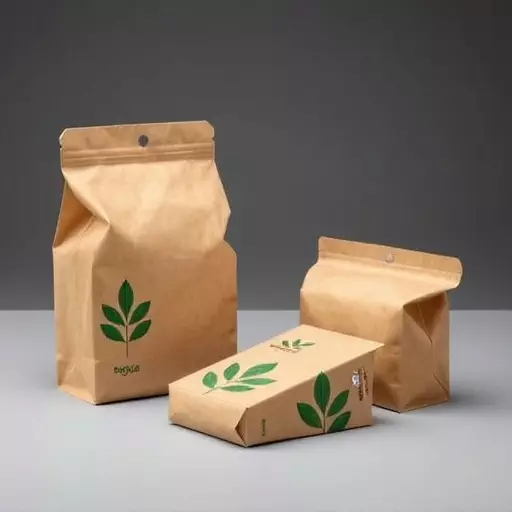Contract packaging solutions have evolved to be pivotal in modern product manufacturing, offering a seamless transition from production lines to market shelves while emphasizing sustainability. These solutions are increasingly tailored to meet environmental standards, utilizing recyclable or biodegradable materials and energy-efficient technologies that also cater to specific branding needs and regulatory compliance. The industry’s focus on sustainability is driven by both ecological imperatives and consumer demand for environmentally friendly products. Advanced automation and data analytics tools are instrumental in optimizing packaging processes, supporting brand identity, and engaging customers without compromising the product’s lifecycle or environmental impact. Companies benefit from modular contract packaging systems that offer agility and scalability, adapting swiftly to market demands. Sustainable contract packaging is now a strategic priority for brands looking to minimize their ecological footprint and enhance their market position through eco-conscious practices. These innovations in sustainable contract packaging not only align with current environmental regulations but also position businesses to meet future sustainability challenges, ensuring they remain competitive in an increasingly eco-aware consumer landscape.
Navigating the dynamic landscape of product manufacturing, businesses are increasingly turning to modular contract packaging as a cornerstone of operational efficiency and environmental responsibility. This article delves into the multifaceted benefits and advancements within the sphere of sustainable contract packaging solutions. We will explore how these tailored approaches not only streamline production but also align with critical sustainability goals, ensuring businesses can meet consumer demands for eco-conscious products. From the adoption of eco-friendly materials to the integration of cutting-edge technologies, we will examine case studies that exemplify success in this domain. Additionally, insights into custom contract packaging options and their role in catering to a wide array of product needs will be provided. Furthermore, we will investigate the latest innovations in modular systems, highlighting how automation and robotics are revolutionizing efficiency and adaptability in packaging processes. Lastly, we will discuss sustainable practices as a comprehensive approach, emphasizing key strategies and real-world examples that underscore the importance of environmentally friendly contract packaging solutions in today’s market.
- Maximizing Efficiency and Sustainability in Contract Packaging Solutions
- – Overview of modular contract packaging and its role in modern manufacturing.
- – The benefits of adopting sustainable practices in custom contract packaging.
- – Case studies showcasing successful integration of eco-friendly materials and processes.
Maximizing Efficiency and Sustainability in Contract Packaging Solutions

In the realm of product manufacturing, contract packaging solutions play a pivotal role in streamlining the process from production to market. Companies often opt for outsourcing their packaging needs to specialized firms that offer sustainable contract packaging options. These firms are at the forefront of integrating eco-friendly practices into their processes, ensuring that each packaged product not only meets the requisite safety and quality standards but also minimizes environmental impact. The use of recyclable or biodegradable materials, efficient packing techniques, and energy-saving equipment are among the strategies employed to maximize both efficiency and sustainability. Moreover, custom contract packaging allows for tailored solutions that align with specific brand requirements and regulatory compliance, further enhancing the eco-conscious approach in product presentation. By leveraging scalable and adaptive packaging systems, these providers can cater to a wide array of products and package volumes, providing businesses with the flexibility needed to navigate market demands while maintaining a commitment to sustainability.
The evolution of contract packaging solutions towards sustainability is not just a response to environmental pressures but also a strategic imperative for brands looking to differentiate themselves in a competitive marketplace. Customization is key, as it enables packaging to be optimized for each product’s lifecycle and end-of-life considerations. This approach not only reduces waste but also ensures that the packaging design supports brand identity and customer engagement. By adopting advanced technologies such as automation and data analytics, these packaging solutions can predict demand patterns, reduce excess materials, and optimize shipping logistics, thereby significantly cutting down on carbon footprint. The drive towards sustainable contract packaging is a testament to the industry’s commitment to innovation and its recognition of the importance of environmentally responsible practices in the broader context of corporate social responsibility.
– Overview of modular contract packaging and its role in modern manufacturing.

Modular contract packaging has become a pivotal aspect in the modern manufacturing landscape, offering businesses agile and scalable solutions to meet diverse packaging needs. This approach to packaging allows companies to customize their packaging processes according to product specifications, batch sizes, and speed to market. It encompasses a range of equipment that can be reconfigured or expanded as the demands of a project evolve. The modularity inherent in these systems means that manufacturers can adapt quickly, incorporating new technologies or repurposing modules for different packaging formats without significant downtime. This flexibility is crucial for companies looking to stay competitive in a rapidly changing market.
Sustainability is a key driver in the evolution of contract packaging solutions. Modular systems often incorporate eco-friendly materials and energy-efficient designs, making them a cornerstone of sustainable contract packaging. The ability to easily integrate advanced technologies like machine learning for predictive maintenance or real-time quality assurance further enhances their environmental impact. By adopting these innovative practices, companies can not only reduce waste and energy consumption but also future-proof their operations against emerging regulations and consumer expectations for greener products. This commitment to sustainability ensures that modular contract packaging remains at the forefront of industry advancements.
– The benefits of adopting sustainable practices in custom contract packaging.

In the realm of contract packaging, the integration of sustainable practices has become increasingly paramount. Companies are now opting for sustainable contract packaging solutions to meet consumer demand for environmentally responsible products and to mitigate their ecological footprint. These initiatives not only enhance a company’s image but also contribute to resource conservation and waste reduction. For instance, implementing recyclable or biodegradable materials in packaging design reduces the environmental impact of product distribution. Additionally, energy-efficient machinery and optimized production processes within custom contract packaging can lead to significant reductions in carbon emissions. By adopting these sustainable practices, businesses not only align with regulatory standards but also position themselves favorably in a market that increasingly values environmental stewardship. This commitment to sustainability can foster customer loyalty and potentially open up new markets for a company’s packaging services.
The transition to sustainable contract packaging is a multifaceted endeavor that involves careful consideration of material selection, process efficiency, and end-of-life management. Custom contract packaging providers who embrace these principles can offer innovative solutions that go beyond mere compliance. They can provide valuable insights into material science advancements, such as the use of plant-based or compostable materials, which further reduce the environmental impact. Furthermore, these providers often invest in technology upgrades to improve efficiency and minimize waste throughout the packaging lifecycle. By doing so, they not only enhance their own operational capabilities but also provide clients with a competitive edge in the marketplace, where sustainable practices are increasingly synonymous with brand success.
– Case studies showcasing successful integration of eco-friendly materials and processes.
Contract packaging solutions have evolved significantly with the integration of sustainable practices, exemplified by numerous case studies that showcase the successful adoption of eco-friendly materials and processes. One notable example is a company that transitioned from traditional plastics to biodegradable materials for their custom contract packaging needs. This shift not only reduced the environmental footprint but also resonated with an increasingly eco-conscious consumer base. The shift was meticulously planned and executed, ensuring minimal disruption to production while maximizing sustainability. Another case study highlights a company that implemented a closed-loop recycling system within their packaging process. This innovative approach not only diverted waste from landfills but also led to cost savings and improved brand image due to the reduced carbon footprint. These examples underscore the viability of sustainable contract packaging as a forward-thinking approach that aligns with both environmental stewardship and market demands for responsible consumption. The adoption of these green practices has proven that sustainability in contract packaging solutions is not just a trend, but a strategic business move that can lead to long-term success and customer loyalty.


